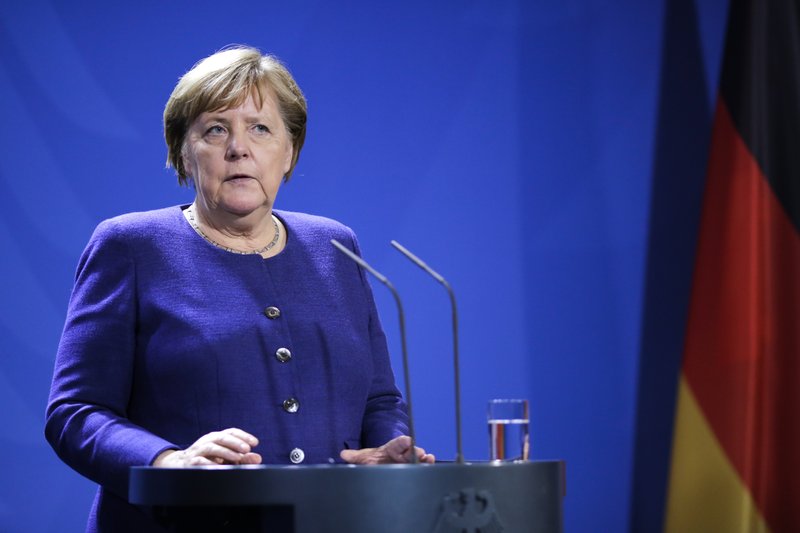Germany is bringing together the key players in Libya’s long-running civil war in a bid to curb foreign military meddling, solidify a cease-fire and help relaunch a political process to determine the North African nation’s future.
Chancellor Angela Merkel invited leaders from 12 countries as well as the United Nations, the European Union, the African Union and the Arab League to Sunday’s summit at the chancellery in Berlin. Germany’s months-long diplomatic drive seeks to bolster efforts to stop the fighting in Libya by U.N. Secretary-General Antonio Guterres and his envoy for Libya, Ghassan Salame.
Among those expected are Russian President Vladimir Putin, French President Emmanuel Macron, Italian Premier Giuseppe Conte, British Prime Minister Boris Johnson and U.S. Secretary of State Mike Pompeo. Other countries invited are the United Arab Emirates, Egypt, Algeria, China and the Republic of Congo.
Also invited are Libya’s two main rival leaders: Prime Minister Fayez Sarraj and Gen. Khalifa Hifter. Both will attend, according to German Foreign Minister Heiko Maas.
The chances of the summit producing any real progress are unclear, however. While getting the players to the table is an achievement, recent stepped-up outside support may have emboldened both sides not to compromise.
Germany’s priority is to try to get the outside players that have interests in the conflict on the same page, stem the flow of weapons to Libya and ensure that the cease-fire sticks — creating space for U.N.-led efforts to re-establish a political process in Libya.
“At the Libya conference, we must see above all that the arms embargo is once again complied with — it has been agreed in principle at U.N. level but unfortunately not kept to,” Merkel said.
Germany is also keen to prevent Libyan fighting from further destabilizing the region, potentially setting off new waves of migrants seeking safety in Europe across the Mediterranean Sea.
Maas traveled to Libya to meet Hifter on Thursday. He said the general pledged to respect the cease-fire, even though he had left Moscow days before without signing a draft document setting out details of the truce. Sarraj did sign the document.
U.N. envoy Salame earlier this month demanded an end to all foreign interference in Libya, saying that a military solution is impossible and governments and mercenaries helping rival forces are hindering a political solution.








































admin in: How the Muslim Brotherhood betrayed Saudi Arabia?
Great article with insight ...
https://www.viagrapascherfr.com/achat-sildenafil-pfizer-tarif/ in: Cross-region cooperation between anti-terrorism agencies needed
Hello there, just became aware of your blog through Google, and found ...